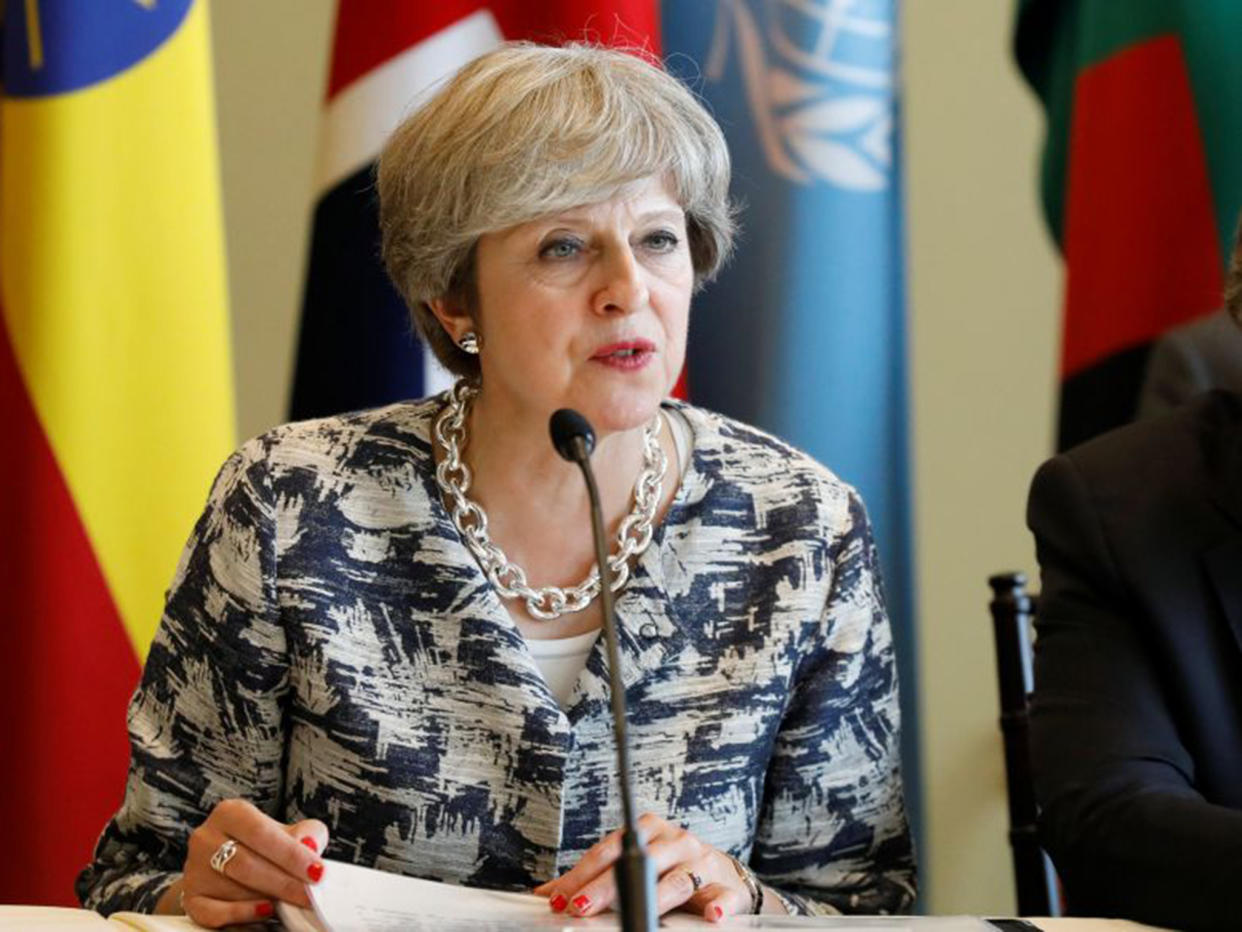Theresa May should have sacked Boris Johnson – he has fewer Tory allies than the Prime Minister fears

“Hug them close” was how Tony Blair’s close aides described his strategy of cosying up to the United States, which ended disastrously in Iraq. The phrase is back in fashion in Whitehall in a different context: the Treasury wants the UK to hug the European Union close after it leaves, to limit the damage to the economy. Philip Hammond, the Chancellor, argues that Britain can decide to diverge from the EU gradually, when it can weigh up the benefits of trade deals with other countries.
Hammond believes the Conservatives can beat Jeremy Corbyn on economic competence at the next election – but not if Brexit has wrecked the economy in the meantime.
Sensible enough, we might think. But not for Brexiteer ministers. They wrongly sense round every corner a civil service plot to keep the UK in the EU – or at least half in.
The UK’s long-term destination is what the cabinet row picked by Boris Johnson is about – not our divorce payment to Brussels. The choice of two futures is between a Canada-EU style trade deal with add-ons for financial services or a model like Switzerland’s with continuing single market access.
The Foreign Secretary’s allies suggest that Theresa May planned to include a nod towards Hammond’s plan in her much-anticipated speech on Europe in Florence on Friday. Instead of fighting his corner in Cabinet, Johnson went public with his 4,200-word essay in The Daily Telegraph at the weekend.
He felt frozen out of the Brexit discussions among cabinet ministers. As the man who tipped the referendum in Leave’s favour, he did not want to be blamed for a bad Brexit. Johnson wouldn’t lose any sleep if we failed to strike a deal with the EU and make a clean break in 2019 – even though it is obvious we need more time to help business prepare and set up a new customs system, and that a “cliff-edge” departure would carry huge economic risks.
I suspect Johnson’s intervention was really a cry for attention after his invisible summer. It was blond ambition. His star had waned after his disastrous leadership campaign last year. He needed to get back in the race when May stands down, probably in 2019. He was playing to the gallery of the 100,000 Tory members who will choose May’s successor, who lean towards a hard Brexit.
So Boris engineered a “win-win” scenario for himself. By allowing hints he might resign to surface, he can claim victory whatever the Prime Minister says on Friday. Or he can quit and claim martyrdom. If May doesn’t sketch out a long-term vision for the UK, he will claim he has seen off a wicked Hammond/Whitehall plot. But that would be as truthful as his bogus claim that Brexit can provide another £350m a week for the NHS. I doubt May has signed up to Hammond’s approach and in any case, she was unlikely to spell out a clear long-term vision on Friday – which would have been dangerous ahead of a tricky Tory conference the week after next.
May’s real goal in Florence is to unblock the stalled negotiations with the EU on the UK’s exit terms by talking money. Her likely opening offer will be to pay into EU coffers until December 2020, the end of the EU’s seven-year budget which the UK signed off in 2013. This could be worth €20bn but will not satisfy EU leaders, who face a €30bn Brexit “black hole”. So May will need to go further later.
It seems Johnson will not complain about money going to the EU over the two years after our March 2019 departure, but will oppose payments for single market access after that. What May should do when the Cabinet meets on Thursday is rebuke Boris and back Hammond’s approach for the sake of the economy. But she will probably settle for a cabinet show of unity on Friday. It will be skin-deep; the real battle over the UK-EU relationship will merely be postponed.
Before the June election, Johnson would have been sacked for such a naked breach of collective cabinet responsibility. He calculated that May is now too weak to dismiss him, and was right. With Tory MPs saying the woman with the kitten heels has used up eight of her nine lives, she decided not to risk losing her Foreign Secretary – and creating a backbench cheerleader for hard Brexit.
Although Boris is back in the limelight as he desired, this saga may not enhance his leadership prospects. His disloyalty will be remembered by Tory MPs who, crucially, choose the shortlist of two who go into a ballot of Tory members. If May had sacked him, he might have found he had fewer friends on the back benches than she had feared.
Playing down a crisis of his own making, Johnson described the Cabinet as “a nest of singing birds”. May now realises that it is more like a nest of vipers.

 Yahoo News
Yahoo News 
